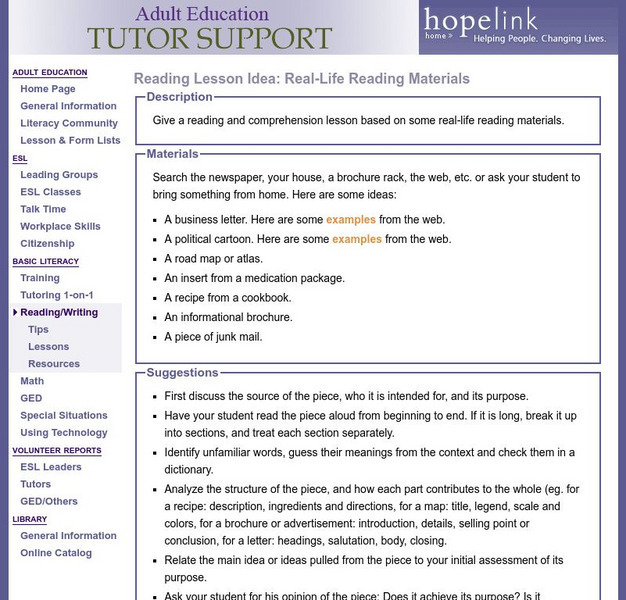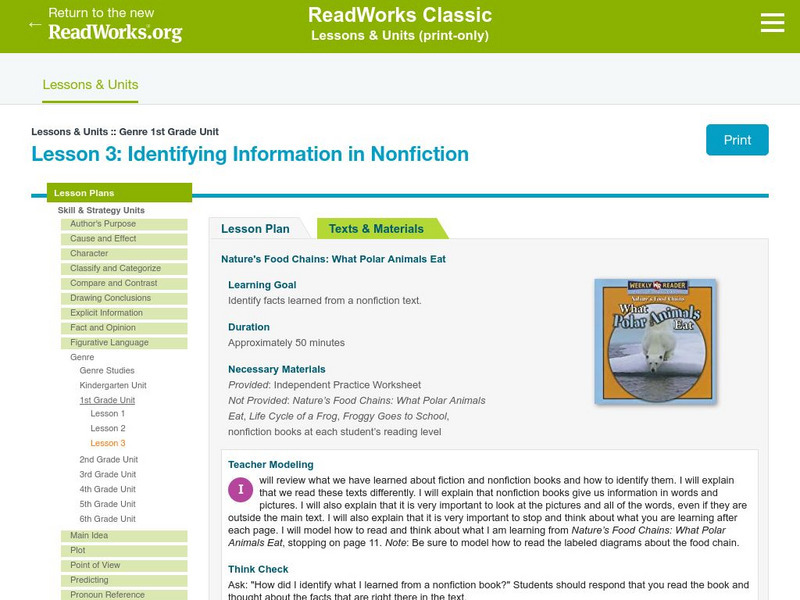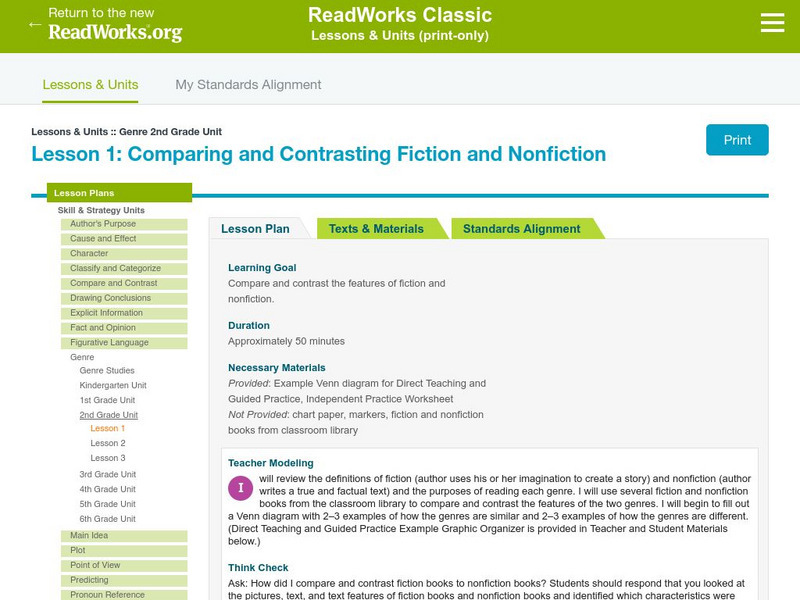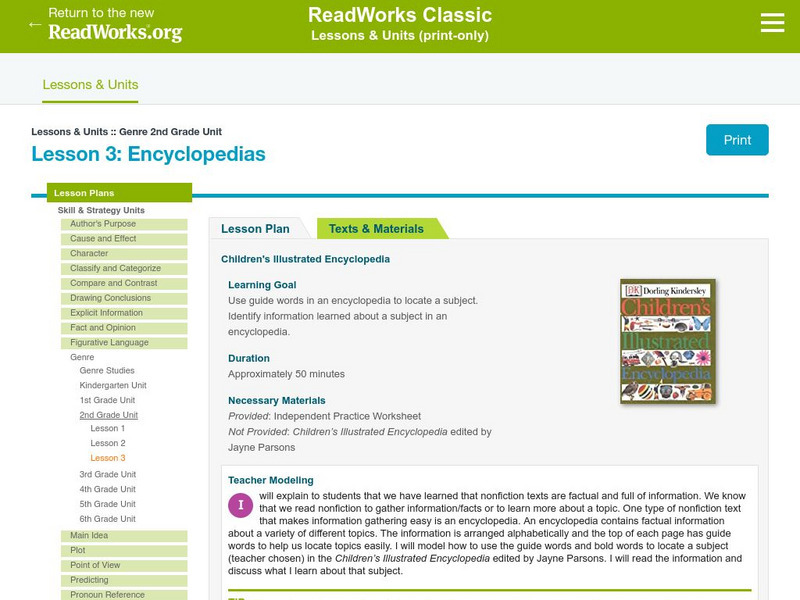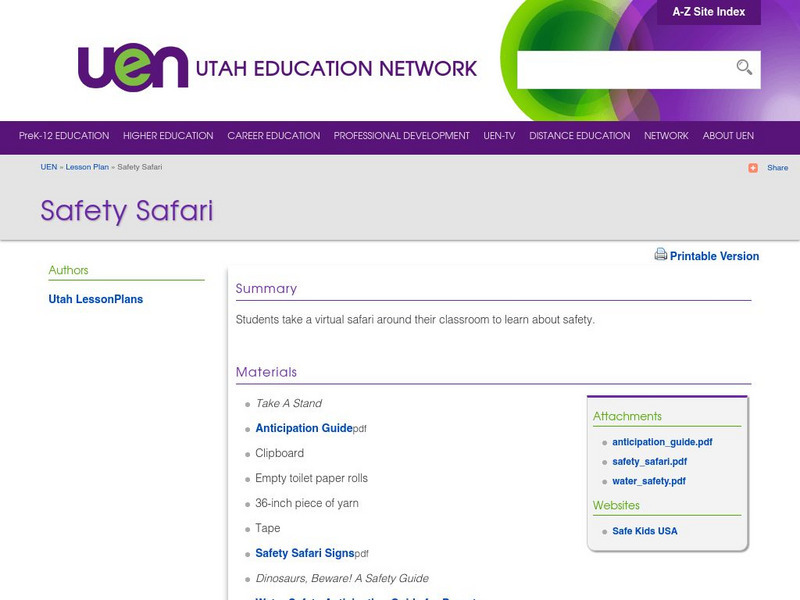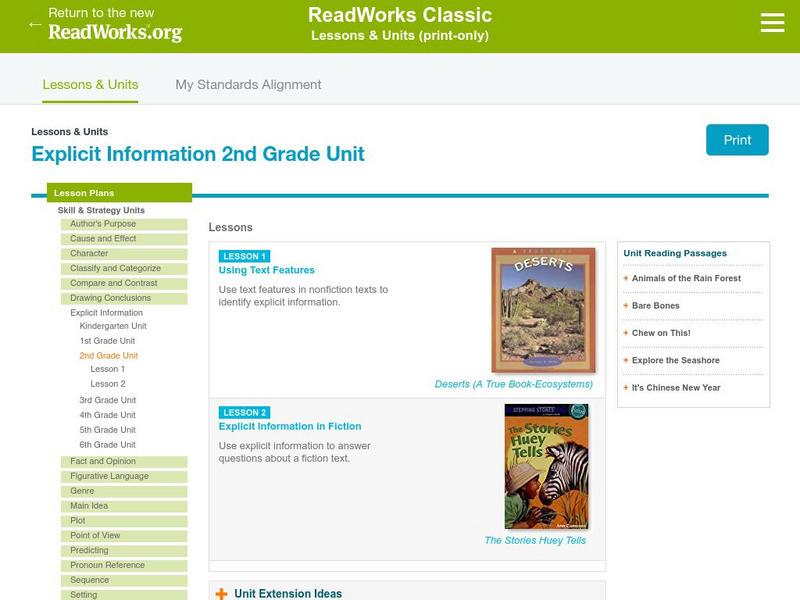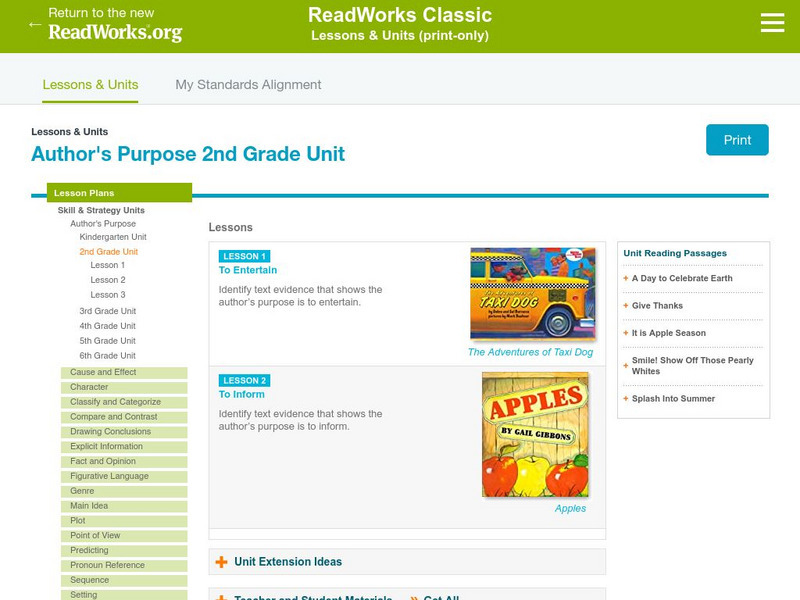Curated OER
Postcards from the Past
Learners create postcards from the past by summarizing a historical event. Then they design illustrations for their postcards and send them off to another teacher at their school.
Curated OER
A View of Yourself Through Famous Writers
Students research famous quotes and discover one that describes themselves. They consider topics such as family and hobbies that will help others understand them. They present their information to the class.
Curated OER
Making a Karst Dictionary
Students practice using the correct vocabulary in geology and hydrology. They use the Internet to research topics and practice their researching skills.
National First Ladies' Library
States' Rights: 1798-1860
Students develop an annotated timeline specific to the concept of States' Rights. They research an example to the doctrine noting how the ideas change and beome more specific as time passes and discuss their findings through class...
Hopelink
Hopelink: Reading Lesson Idea: Real Life Reading Materials
The purpose of this reading lesson is to offer a reading and comprehension lesson based on real-life reading materials. This gives young scholars the opportunity to gain reading comprehension skills from real-life reading material.
TES Global
Tes: Guided Reading Resources: Nonfiction
[Free Registration/Login Required] This learning module contains several guided reading resources. Students will be able to use the charts to guide themselves as they discuss informational texts and persuasive texts. Teachers can monitor...
Read Works
Read Works: Genre 1st Grade Unit: Identifying Information in Nonfiction
[Free Registration/Login Required] A instructional activity in which learners use the books Nature's Food Chains: What Polar Animals Eat by Joanne Mattern, Life Cycle of a Frog by Angela Royston, and Froggy Goes to School by Jonathan...
Read Works
Read Works: 2nd Grade Lesson: Compare/contrast Genres
[Free Registration/Login Required] A lesson in which students use fiction and nonfiction books from a classroom library to identify the similarities and differences between fiction and nonfiction and to create a Venn diagram...
Read Works
Read Works: 1st Grade Lesson: Purposes for Reading
[Free Registration/Login Required] A lesson in which students use the books Nature's Food Chains: What Polar Animals Eat by Joanne Mattern, Life Cycle of a Frog by Angela Royston, and Froggy Goes to School by Jonathan London to learn to...
Read Works
Read Works: 1st Grade Lesson: Classifying Texts
[Free Registration/Login Required] A lesson in which students use the books Froggy Goes to School by Jonathan London and Life Cycle of a Frog by Angela Royston to learn to classify texts as fiction or nonfiction. Lesson includes direct...
Read Works
Read Works: Genre 2nd Grade Unit: Encyclopedias
[Free Registration/Login Required] A lesson in which students use the book Children's Illustrated Encyclopedia edited by Jayne Parsons to learn to locate information and find facts about a subject in an encyclopedia. Lesson includes...
Utah Education Network
Uen: Safety Safari
Second graders will engage in nonfiction reading and writing strategies that will help them describe and adopt safe and healthy behaviors. An anticipation guide, a song, and several high-interest trade books will engage the the readers...
Read Works
Read Works: Grade 2: Two Lesson Unit: Explicit Information
[Free Registration/Login Required] Designed to teach students to identify explicit information in nonfiction and fiction texts. Lessons are based on the books Deserts (A True Book-Ecosystems) by Darlene R. Stille and The Stories Huey...
Read Works
Read Works: Grade 2: Three Lesson Unit: Author's Purpose
[Free Registration/Login Required] A series of three lesson plans designed to teach students to identify author's purpose including to entertain, to inform, and to persuade. Lessons are based on the books The Adventures of Taxi Dog by...




